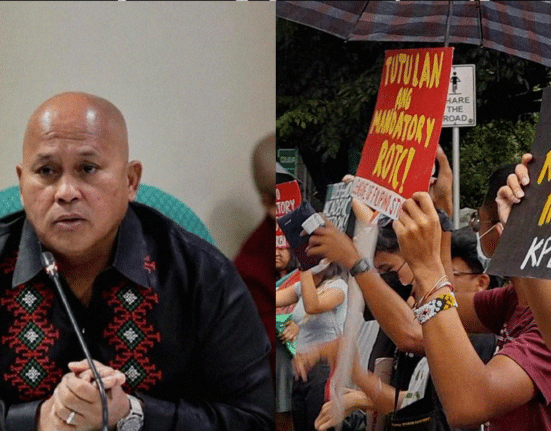BACK in 2001, a Reserve Officers’ Training Corps (ROTC) cadet from the University of Santo Tomas made the brave move of exposing the corruption, bribery, and abuse happening within the program through an article in The Varsitarian. It was aptly titled “Struggle Against the System.”
A month later, he was found dead. His body was fished out of Pasig River, and he’d been mercilessly bound using duct tape to ensure that he wouldn’t be able to escape. His death was connected to his exposé of the ills within the ROTC system.
His name was Mark Welson Chua. He was only nineteen years old.
His death – and the many other abuses within this program – led to the abolition of mandatory ROTC in schools.
This did not stop then President Rodrigo Duterte from pushing to bring the said program back in 2019, reasoning that it would help to instill a sense of nationalism and patriotism within the youth, which would help strengthen their nerves on the line of duty.
The MROTC proposal status
President Ferdinand “Bongbong” Marcos Jr. has since shown support for this idea, stating during his first State of the Nation Address that during his presidency, he hopes that Congress will be able to pass a law reinstituting ROTC as a mandatory part of the 11th and 12th grade.
Like his predecessor, he said he wants this because it would help students be ready for national defense, disaster, and risk preparedness.
In connection with this, Sen. Ronald “Bato” Dela Rosa filed a bill to revive mandatory ROTC in March. He also wants women to be included in the program.
Later, upon being questioned by Sen. Francis “Chiz” Escudero on why women needed to be included in the proposed program, Dela Rosa said that this was for the sake of gender equality.
He explained that when mandatory ROTC was first enacted, gender equality was not a popular concept yet. Now that it’s become more accepted, he felt that women should be able to serve as well.
“Right now, gender equality is the norm of the day,” he said. “’Yan palagi ang sinasabi ng ating mga kakabaihan, so let’s give them the benefit of serving this country.”
Senate President Juan Miguel Zubiri added that members of the LGBTQ+ community have also been considered and are a part of the proposal.
Dela Rosa further reasoned that when he asked his daughters and female staff about their opinion on the topic, they’d said that they would want to be a part of the program.
Escudero, however, answered: “Alangan namang sabihin sayo hindi, author ka.”
The pros and cons
At present, several countries are at war with one another; for some, it makes sense to implement a program such as this to ensure that the Philippines is prepared if ever it would get caught up in one.
Lawyer Raymond Caraos, for example, is in support of its reimplementation because, to him, it’s not just learning about marching and discipline: it helps people to learn about civic duty. It encourages the new generation to defend their country against foreign intervention if ever needed.
Caraos also stated that while the ROTC program may have its flaws, its basic principle and philosophy are still geared towards the upholding of one’s civic duty. Above all, he noted that the fundamentals that you learn in this program can’t exactly be taught at home, in the workplace, or in practically any other environment.
In a perfect world, the implementation of MROTC makes sense. The world that people live in today, however, is far from perfect – the complete opposite of it, if anything.
This can be seen in the case of Chua. Aside from this, there have also been numerous occurrences reported of cadets within the program abusing their power.
Just three years ago, it was reported that ROTC Cadet Elmer Decilao killed another student, his fellow corps commander, Willy Amihoy. Amihoy’s body was found wrapped in fabric, laid out carelessly within the school’s restroom. This is just one of several cases of abuse that have happened under the program.
“History tells us the reason why it was removed: multiple incidents of harassment, and even death,” said Brylle Matthew Principe, a 1st-year student from the Ateneo de Manila University.
“That history, paired with the current state of our police and military, will surely result in more abuses. It just creates students and soldiers that can work for the state to maintain the status quo,” Principe added.
Miguel Sabularse, a student from UST, noted that he did not hear good things about the mandatory ROTC from his father, who experienced it in the ‘80s. His father described it as a waste of time and money.
Students were constantly required to follow orders from power-tripping commanders who would insult them, commanding them to stand and march under the sun for hours on end, he noted.
A means for “gender equality”?
Dela Rosa’s call to include women in the name of gender equality has also met with opposition.
“Bato Dela Rosa’s statement is wrong because that’s not what gender equality really is,” said college student Jan Charlemagne.
“The fight of feminists to attain gender equality is about women getting the same rights as men and having the same privileges as men; it’s not if mahirapan ang lalake, dapat mahirapan din ang babae,” she added.
Sabularse noted that the call for gender equality comes from a long history of oppression as well as misogyny. He feels that Dela Rosa using this term to justify the inclusion of women in the ROTC reveals just how shallow his understanding of gender equality is.
For Pamela Gonzales, a UST student, Dela Rosa’s attempts to include women in the program is a front to push his militaristic views.
Gabriele Ann Nicolas, also a UST student, notes that there are already women in the armed forces.
“I guess the difference between that fact and Bato’s proposal is the removal of choice,” Nicolas said.
She advised authorities to focus on what she felt are more pressing issues, such as those of reproductive health, or the signing into law of the SOGIE Bill.
Several issues exist in the Philippines that hinder the so-called gender equality that Dela Rosa hopes to achieve with the implementation of mandatory ROTC, she noted. If anything, a mandatory rule to include women in the ROTC would leave them even more vulnerable to such issues, she said.
UST student Francesca Ventanilla thinks the call for mandatory ROTC could be a ploy to control dissent.
“We should all have the right to oppose mandatory ROTC; it’s clear the government will do everything in its power to push for this simply because they are threatened by citizens who recognize their rights and are willing to stand up for it,” Ventanilla said.
“The push for mandatory ROTC just reaffirms how frightening these times are as a woman, a student, and a member of the youth sector,” she added.
There are others, though, that do not mind it. College student Migel Jeriko Dela Cuesta feels that it is perfectly fine to include women in ROTC, given that Filipinos no longer live in a world where only the men are allowed to be in everything.
“I do ask: why do we need to use gender equality as a reason for women being included in MROTC? Isn’t a better reason to exercise women’s liberation?” he said.
How useful was this post?
Click on a star to rate it!
Average rating 0 / 5. Vote count: 0
No votes so far! Be the first to rate this post.
We are sorry that this post was not useful for you!
Let us improve this post!
Tell us how we can improve this post?









